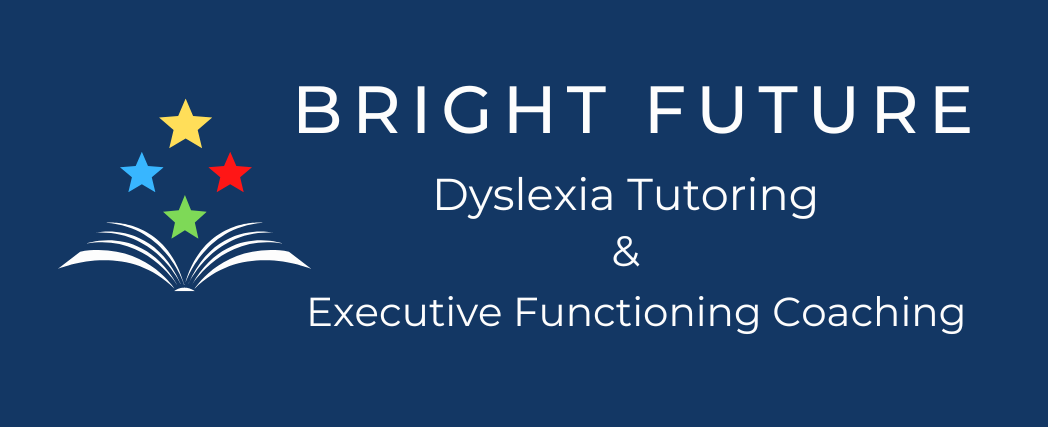Executive Functioning Coaching
What is executive functioning?
Executive functioning is located in the frontal lobes behind the forehead and is the control center of the brain. The main purpose of executive functioning is to manage and control information, bringing that information together and communicating it to other parts of the brain so we can use it. Basically, these mental skills help us get things done.
Anyone can experience executive functioning weakness at any age, but it is especially evident in people with learning differences such as dyslexia and ADHD, or even someone who has experienced a traumatic brain injury.
Student executive functioning weaknesses and difficulties include:

- Taking notes in class
- Managing their time
- Difficulty holding and manipulating information in the brain
- Starting their homework
- Keeping track of and handing in assignments
- Keeping a backpack, room, desk, or locker clean and organized
- An inability to get places on time or keep scheduled appointments
- Being easily distracted, inability to focus and pay attention
- Trouble following multi-step directions
- No motivation, stamina, or persistence
- Slower processing speed
- Impulsive behavior, negative or bad attitude
Adult executive functioning weaknesses and difficulties include:
- Forgetting to complete tasks
- Frequently losing their keys or cellphone
- Losing their train of thought
- Being habitually late to appointments
- Trouble meeting deadlines
- Difficulty organizing and planning
- Trouble switching focus between tasks
- Managing time
- Having a hard time prioritizing their work and responsibilities
- Easily frustrated and unable to manage situations
Executive functioning coaching focuses on strengthening three core executive functioning skills: working memory, cognitive flexibility, and inhibitory control.
Working memory helps us hold on to pieces of information in our mind and manipulate them. A strong working memory helps us stay focused, block distractions, solve problems in our head, and be aware of what is happening around us.
Cognitive Flexibility helps us adapt to and change our thoughts and tasks based on changes happening around us. Strong cognitive flexibility helps us control our behaviors and thoughts and helps us pay attention and minimize distractions. It helps us switch gears when we need to change tasks or have an unexpected situation, and helps us know how to organize tasks based on their importance. It helps us be creative and be excellent problem solvers.
Inhibitory Control helps us stay focused and organized by blocking distractions. It helps us manage our emotions and manage our environment by turning off technology and working in an organized space without distractions.
When all three of these main executive functions work together in unison, we will be able to achieve in school, in work, and in life. We can:
- Plan ahead and reach our goals
- Achieve academically
- Manage our time so we can be the most productive we can possibly be
- Organize our materials and workspace so we can be distraction free
- Learn to reason so we can draw correct conclusions
- Be excellent problem-solvers who can think outside the box and come up with usable solutions when unexpected problems arise.
We will be productive and successful members of society, being the best versions of ourselves possible!
If you are interested in executive functioning coaching for you or your child, please contact me via the contact tab. Each situation is unique, so after identifying strengths and weaknesses, I will create and implement an individualized coaching plan for each person based on their specific needs.
